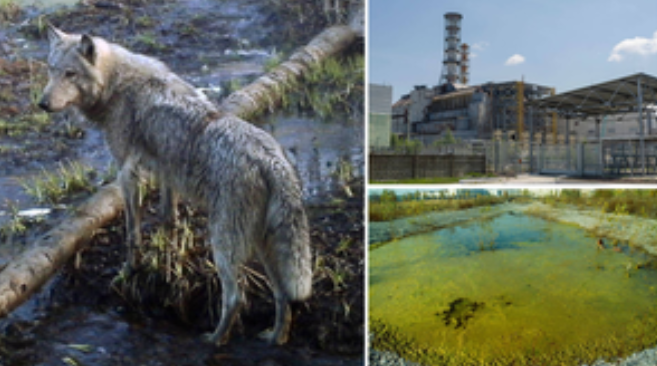America
Mutant Chernobyl wolves develop anti-cancer abilities, may pave way for cure: Study

New York, Feb 9
Mutant wolves around Chernobyl, where the world’s worst nuclear accident took place 35 years ago, has now developed anti-cancer abilities, an advance that may open door for cure against the deadly disease, according to a study.
In 1986, a nuclear reactor at the Chernobyl power plant exploded, releasing cancer-causing radiation and irradiated debris into the environment.
The Chernobyl Exclusion Zone (CEZ), a 1,000 square mile zone surrounding area, cordoned off to prevent further exposure to radiation, has been recolonised by wildlife like horses, wolves, forests, and fungi.
Now, researchers at the Princeton University in the US are studying how the wolves of Chernobyl survive and thrive despite generations of exposure and the accumulation of radioactive particles in their bodies.
The team led by Cara Love, an evolutionary biologist and ecotoxicologist in Shane Campbell-Staton’s lab at Princeton in 2014 went to the CEZ, radio-collared wolves, and took blood to understand the wolves’ responses to cancer-causing radiation.
Using these specialty GPS collars armed with radiation dosimeters, “we get real time measurements of where they are and how much (radiation) they are exposed to,” said Love.
They discovered that Chernobyl wolves were exposed to upwards of 11.28 millirem of radiation everyday for their entire lives, over six times the legal safety limit for the average human worker.
Unlike wolves living exclusively outside the CEZ, Love found that Chernobyl wolves have altered immune systems, similar to cancer patients undergoing radiation treatment. And most promising, she has identified specific regions of the wolf genome that seem resilient to increased cancer risk.
Most human research has found mutations increasing cancer risk (like BRCA does with breast cancer), but Love's work hopes to identify protective mutations that increase the odds of surviving cancer.
Tragically, Covid-19 and ongoing war in the region have prevented Love and her collaborators from returning to the CEZ since.
“Our priority is for people and collaborators there to be as safe as possible,” she said. Love presented the findings at the Annual Meeting of Society of Integrative and Comparative Biology’s Annual Meeting in Seattle, Washington in January.

35 minutes ago
Trump signs order to support children coming out of foster care

15 hours ago
'Train US workers, then go home': US Treasury Secy clarifies Trump's softened stance on H-1B visa reform

16 hours ago
US House to vote next week on bill seeking release of all Jeffrey Epstein case files

16 hours ago
Miraculous images of Lord Shiva appearing in their home deepened the faith of the New Jersey family

17 hours ago
India, Canada discuss ways to boost bilateral trade, promote investments

18 hours ago
American Telugu Association Hosts Student Orientation for Indian Students at the University of Wisconsin–Milwaukee

18 hours ago
Corpus Christi City Council meeting opens with Hindu mantras in Sanskrit

21 hours ago
Director Sundar C opts out of Rajinikanth's #Thalaivar173

21 hours ago
Stand-up comedians deliver solid punches tickling Big B’s funny bone on ‘KBC’

21 hours ago
Supriya Pathak reveals Auntypreneur reminded her that 'courage doesn’t always roar'

21 hours ago
Arya hopes rains stay away to enable 'Vettavam' team to continue shooting of climax

21 hours ago
Veteran actress Guddi Maruti recalls her popular kiss scene with Akshay Kumar from ‘Khiladi’

21 hours ago
'Globe Trotter' event is not an open one, reiterates director S S Rajamouli






















